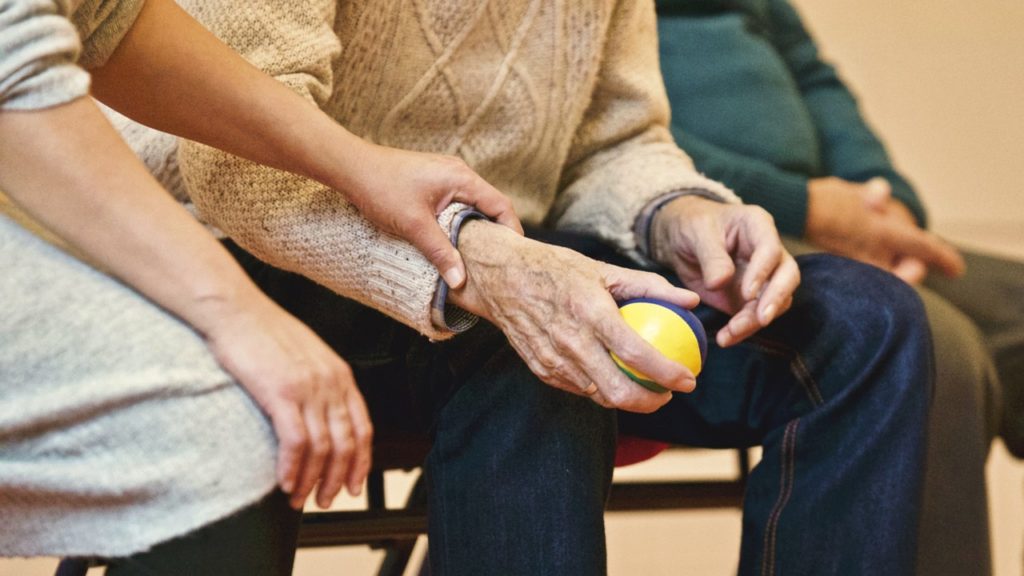How Can a Guardianship Lawyer Help?
 When a person has difficulties making appropriate decisions concerning matters relating to their person, due to a mental or physical disability (including advanced age), you may need to engage a Guardianship lawyer who can advise you in relation to the process and evidence needed for a Guardian to be appointed.
When a person has difficulties making appropriate decisions concerning matters relating to their person, due to a mental or physical disability (including advanced age), you may need to engage a Guardianship lawyer who can advise you in relation to the process and evidence needed for a Guardian to be appointed.
A Guardian is a decision maker. The types of decisions that a Guardian could make include such matters as where the person will live, what services they may need, what medical treatment or healthcare they may need. If you’re considering becoming the guardian of another person, while you could undertake the process yourself, an experienced guardianship lawyer can help you navigate the process and bring clarity to the proceedings.
it is important to find a solicitor who is familiar with guardianship and related issues. It is a specialised area of law.
What is a Guardianship Order in NSW?
A Guardianship Order appoints an individual as a legal decision maker for another person who can’t make, or has lost the capacity to make, their own decisions. It gives legal authority to the appointed guardian to make specific types of decisions that may be required in a particular case.
Who Can Apply for a Guardianship Order in NSW?
 Anyone can apply for a Guardianship Order for an adult who can’t make their own decisions. All that is needed is a genuine concern about the person’s welfare. It is usually the person’s family members who apply for the order, but sometimes it is a social worker or a doctor, or other person with an interest in the subject person’s welfare, who has a concern about that person’s ability to make their own considered decisions.
Anyone can apply for a Guardianship Order for an adult who can’t make their own decisions. All that is needed is a genuine concern about the person’s welfare. It is usually the person’s family members who apply for the order, but sometimes it is a social worker or a doctor, or other person with an interest in the subject person’s welfare, who has a concern about that person’s ability to make their own considered decisions.
You can apply for a Guardianship Order on behalf of your family member if there is or are specific current or imminent decision(s) that need to be made, and your family member is suffering from some type of decision making disability relating to their person (including advanced age).
Who Can be Appointed as a Guardian in NSW?
Before an order is made appointing a person as a Guardian for another person, the Tribunal making the decision must be satisfied that:
(a) the personality of the proposed guardian is generally compatible with that of the person under guardianship,
(b) there is no undue conflict between the interests (particularly, the financial interests) of the proposed guardian and those of the person under guardianship, and
(c) the proposed guardian is both willing and able to exercise the functions conferred or imposed by the proposed guardianship order.
(Section 17, Guardianship Act 1987).
If there is no one available fulfilling these requirements, then the Public Guardian will be appointed. The Public Guardian is a government agency tasked with acting as Guardian for people who need a Guardian, and for whom there is no private person who is suitable and available, or where there is significant conflict between family members.
Limits on a Guardian’s Authority
 A Guardian’s authority is limited by the terms of the Order appointing a Guardian. This means that they do not have the right to make any and all decisions about whatever they choose. Instead, their authority is limited to the specific matters spelled out in the Guardianship Order. The authority given under the Order are referred to as “functions”. Functions will generally only be granted where there is a demonstrated need for that type of function.
A Guardian’s authority is limited by the terms of the Order appointing a Guardian. This means that they do not have the right to make any and all decisions about whatever they choose. Instead, their authority is limited to the specific matters spelled out in the Guardianship Order. The authority given under the Order are referred to as “functions”. Functions will generally only be granted where there is a demonstrated need for that type of function.
There are variety of functions which a Guardian may be given, including making decisions about where the person will live, what services the person may require, what healthcare the person may need, decisions about medical treatment, including the right to consent to or refuse treatment. Less common functions include who may have access to the person and on what terms, what legal services the person may need, and advocacy.
Do You Need the Assistance of a Guardianship Lawyer?
 A Guardianship Order is a formal legal order that is issued by a legal tribunal (NCAT – Guardianship Division). As such, it is very important that the correct procedures are followed, and that sufficient and appropriate (relevant) evidence is put before the Tribunal to establish a legal need for a Guardian to be appointed. This evidence includes medical evidence to establish incapacity, and evidence of the current needs of the person in terms of decision making. In addition to this, there needs to be evidence about the person or persons seeking to be appointed as Guardian(s), as to how they would fulfill the role, and in relation to how they meet the requirements mentioned above in the “Who Can be Appointed” section.
A Guardianship Order is a formal legal order that is issued by a legal tribunal (NCAT – Guardianship Division). As such, it is very important that the correct procedures are followed, and that sufficient and appropriate (relevant) evidence is put before the Tribunal to establish a legal need for a Guardian to be appointed. This evidence includes medical evidence to establish incapacity, and evidence of the current needs of the person in terms of decision making. In addition to this, there needs to be evidence about the person or persons seeking to be appointed as Guardian(s), as to how they would fulfill the role, and in relation to how they meet the requirements mentioned above in the “Who Can be Appointed” section.
The Tribunal process is relatively informal, and legal representation is not a requirement, and indeed is not actively encouraged by the Tribunal, but there are certainly many matters which have some type of complexity for which a guardianship lawyer experienced in this jurisdiction can assist the process significantly.
Step by Step Process of Applying for a Guardianship Order
The first two steps are optional, but recommended in any complex matter:
– Contact a guardianship lawyer who is experienced in helping people apply for Guardianship Orders
– Work with your guardianship lawyer to collect the evidence needed to prove the need for a Guardianship Order
The next five steps your lawyer can do with or on your behalf if you choose to retain a lawyer:
– Prepare an Application for a Guardianship Order
– File the Application in the Registry of NCAT Guardianship Division
– Prepare and file all supporting evidence
– Serve the Application and all supporting evidence on the person, and on any other required party (the person’s spouse, the person’s carer are the most common)
– Appear / be present at the hearing of the matter in NCAT Guardianship Division
Next steps:
– If your application is successful the tribunal will make a Guardianship Order for a specified period, and appoint a person (or persons) as Guardian
– The Guardian will then be legally responsible for making decisions on behalf of the person who is unable to make their own decisions
– The Guardianship Order will be reviewed at its expiry, at which time it may be continued, varied, or lapsed.
When Will a Guardianship Order be Made?
A Guardianship Order will be made when the person:
– Has a significant incapacity (mental or physical) that affects their ability to manage their own affairs relating to their person
– Has lost their ability to make informed decisions
– Is unable to understand the nature and implications of a proposed course of action, such as moving into a nursing home, or some proposed treatment
– Is unable to effectively communicate their wishes due to their disability.
In Summary
 If a loved one is unable to make decisions for themselves, a guardianship order may be needed. This could be because they are unable to understand what they want and need. Or perhaps they have a mental illness or other incapacity that prevents them from acting in their own best interests. In any case, there are times when a guardian must be appointed for someone who cannot act for themselves.
If a loved one is unable to make decisions for themselves, a guardianship order may be needed. This could be because they are unable to understand what they want and need. Or perhaps they have a mental illness or other incapacity that prevents them from acting in their own best interests. In any case, there are times when a guardian must be appointed for someone who cannot act for themselves.
If you decide to undertake this process, it is important to prepare thoroughly. Be sure to gather all of the necessary documentation before you begin your application process. If you wish to retain a guardianship lawyer, be sure to retain one who has specific experience in guardianship cases, as most lawyers in Sydney do not have this specialised experience.
If you need an experienced Guardianship lawyer, call Brigitte Simeonides on (02) 9533 2269